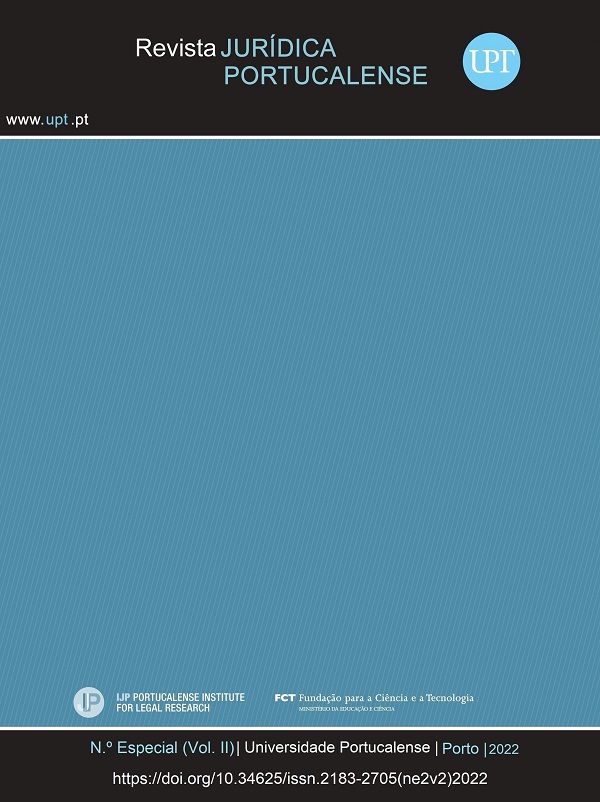The Probative Value of Electronic Documents. Towards the Signature Crisis?
Mots-clés :
Electronic document; Probative value; Signature.Résumé
Author faces the problem of the probative value of electronic documents with a “weak” signature or not signed, illustrating the relevant provisions under Italian law and discussing the different interpretations followed by case law and legal writers. In Author’s opinion, on one hand, it is necessary to distinguish between declaratory and non-declaratory documents in evaluating electronic documents and, on the other hand, courts would have more discretion in establishing the authorship of a declaratory electronic document than of a hand-written one.
Références
CARPINO, Brunetto. Scrittura privata. In: Enciclopedia del diritto, XLI. Milano: Giuffré, 1989.
CARNELUTTI, Francesco. Documento (teoria moderna). In: Nov.ss. dig. it., V, Torino: Utet, 1968.
COLOMBO, Giorgio. Valore probatorio dei documenti e delle riproduzioni informatiche e natura giuridica delle attribuzioni patrimoniali tra conviventi. Corriere giuridico, 2019, 1325-1333.
DI GIACOMO, Vincenzo. Il nuovo processo civile telematico. Milano: Giuffré, 2015.
DITTRICH, Lotario. La prova documentale. In: DITTRICH, Lotario (ed.), Diritto processuale civile, II, Milano: Wolters Kluwer, 2019, 1864-1954.
FARINA, Pasqualina. La querela di falso. Profili teorici e attuativi, II, Roma: Romatre-Press, 2017.
FERRARI, Francesca. Il codice dell’amministrazione digitale e le norme dedicate al documento informatico. Rivista di diritto processuale, 2007, 415-432.
FINOCCHIARO, Giusella. Una prima lettura del Reg. UE n. 910/2014 (cd. eIDAS): identificazione online, firme elettroniche e servizi fiduciari. Nuove leggi civili commentate, 2015, 419-428.
FINOCCHIARO, Giusella. Ancora novità legislative in materia di documento informatico: le recenti modifiche al Codice dell’amministrazione digitale. Contratto e impresa, 2011, 495-504.
GRADI, Marco. Le prove. In: Ruffini, Giuseppe (ed.). Il processo telematico nel sistema del diritto processuale civile, Milano: Giuffré, 2019, 461-578.
IMBROSCIANO, Chiara. Prove documentali 2.0: S.M.S., e-mail e messaggi Whatsapp nei processi della famiglia. Famiglia e diritto, 2020, 568-580.
IORIO, Giovanni. L'efficacia probatoria dei messaggi WhatsApp nei processi familiari. Ilprocessocivile, 2020.
IRTI, Natalino. Idola libertatis. Tre esercizi sul formalismo giuridico, Milano, 1985.
MERONE, Aniello. Il disconoscimento delle prove documentali, Torino: Giappichelli, 2018.
MERONE, Aniello. Electronic signatures in Italian law. Digital Evidence and Electronic Signature Law Review, 2014, 85-99.
PATTI, Salvatore. Prove. Bologna: Zanichelli, 2015.
RICCI, Gian Franco. Valore probatorio del documento informatico ed errori duri a morire. Rivista trimestrale di diritto e procedura civile, 2002, 1423-1429.
ROTA, Fabio. Sub art. 214. In: TARUFFO, Michele (ed.). Istruzione probatoria, Bologna: Zanichelli, 2014.
RUSSO, Federico. Contributo allo studio sul valore probatorio della e-mail. Giustiziacivile.com, 2019, 1-38.
Téléchargements
Publiée
Comment citer
Numéro
Rubrique
Licence
Authors who published in the journal agree to the following terms:
- The Authors grant the Journal the right of first publication, and other non-exclusive publishing rights, licensed under the Creative Commons Attribution License which allows the sharing of work with recognition of its initial publication in this journal.
- Authors are able to take on additional contracts separately, non-exclusive distribution of the version of the paper published in this journal (ex .: publish in an institutional repository or as a chapter in a book), with an acknowledgement of its initial publication in this journal.
- Authors are permitted and encouraged to post and distribute their work online (eg .: in institutional repositories or on their website) at any point before or during the submission process, as it can lead to productive exchanges, as well as increase the impact and the citation of published work (See The Effect of Open Access).
RJP does not apply submission, publication or any other fees of any nature. Its articles are open access, with the goal of disseminating scientific knowledge and the debate of legal topics in the area of Legal Sciences.






